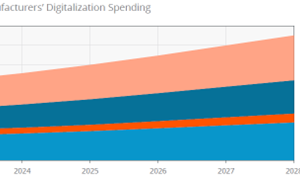Energy company is looking to install computer servers that generate heat in five homes in the Netherlands to check whether the warmth created could be an alternative for traditional radiators
By Aimee Chanthadavong
An energy company is joining forces with a tech startup to harness computing power to heat homes in the Netherlands.
Eneco, a Dutch-based energy company with more than 2 million customers, said on Tuesday that it is installing “e-Radiators” — computer servers that generate heat while crunching numbers — in five homes across the Netherlands in a trial to see whether their warmth could be a commercially viable alternative to traditional radiators.
The technology is the brainchild of the Dutch startup Nerdalize, whose founders claim to have developed the idea after huddling near a laptop to keep warm after their home’s thermostat broke and jokingly suggesting buying 100 laptops.
“Ten minutes later, we thought: ‘That’s not such a crazy idea’,” said Boaz Leupe, one of Nerdalize’s founders.
Nerdalize said its e-Radiators offer companies or research institutes a cheaper alternative to housing servers in datacentres. And because Nerdalize foots the power bill for the radiators, Eneco customers get the warmth they generate for free.
The companies said the environment wins, too, because energy is effectively used twice in the new system — to power the servers and to heat rooms.
Eneco said the computers will be used by institutions including the Leiden University Medical Centre to run complex calculations in their research.
The trial will run at least through to the end of the year. When it is completed, the companies will decide whether to make the system available to more customers.
Using alternative heating methods has long been on the mind of companies.
In 2013, a French company called Qarnot Computing was looking to channel computing power from its datacentres as digital radiators and dispersing it to warm Parisian homes during winter.
Meanwhile, a group of MIT researchers developed a new system called Local Warming. As an alternative to heating entire buildings, Local Warming was developed to synchronise climate control with individuals using ceiling-mounted heaters that can track a single person, keeping them comfortably warm even while the rest of the space may be cold.
Taking it a step further, a UC Berkeley team previously designed the Personal Comfort System, which integrates a slew of low-wattage devices to tailor workstation temperatures.




